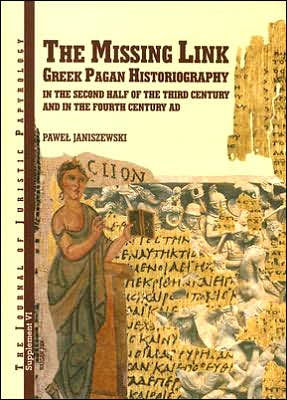
The Missing Link: Greek Pagan Historiography in the Second Half of the Third Century and in the Fourth Century AD
When tracing the course of development of ancient Greek historiography, one comes upon an astounding time gap of about 150 years, stretching from around the middle of the 3rd century to the end of the 4th century AD. In the first half of the 3rd century a rather numerous line-up of historians writing in Greek came to an end with Dio Cassius and Herodian. The lack of well-known Greek historians and extant works from this period is all the more surprising that in the history of Imperium Romanum this was a clearly defined, significant period of great political, economic, religious and cultural changes and breakthroughs. Among others, this time brought the emergence of Christian historiography. Eusebios of Caesarea wrote the first Ecclesiastical History and a Universal Chronicle. This was also a period of great development in Christian polemic literature, which used historical motives for apologetic purposes and propaganda. This heyday of Christian historiography, compared to a surprising decrease in the number of known histories written in Greek by Pagan authors, formed the basis for a theory of the fall of Pagan historiography in the second half of the 3rd century and in the 4th century.
Fundacja Rafała Taubenschlaga /Peeters: Warszawa 2006
Journal of Juristic Papyrology Supplements, 6
ISBN: 9788391825051
XII-532 p.